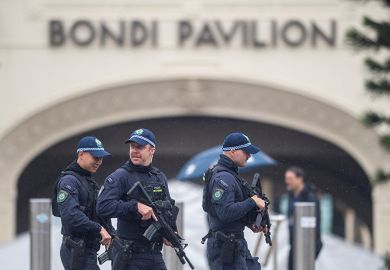UK universities’ failure to safeguard freedom of speech is one of the “great problems of our time”, according to Lord Lawson of Blaby, the former chancellor of the Exchequer.
Lord Lawson, who served as chancellor under Margaret Thatcher – and who is now known for his controversial views on climate change, and for being a prominent supporter of Brexit – was speaking at an event to celebrate the 40th anniversary of the University of Buckingham’s foundation as the UK’s first private university.
Addressing an audience at the event in London, he said that “independence, when it was first thought of for a university, was independence from government. That is very important…But now we have a new problem in the university sector, which is not the problem of government control – though that always needs to be watched – but the problem of the suppression of free speech.”
He said that universities were not the only institutions that were complicit in the erosion of free and open debate. The BBC, he said, was “just as bad”, citing the differences in the way in which it had treated him as a commentator on economics and on global warming.
“I have taken an interest in, and am involved in a thinktank on, the issue of climate change,” he said. “And the BBC kept asking me to appear on the Today programme [on Radio 4] to talk about economic issues, but never on climate change. Eventually, about three years ago, I was asked to take part in a debate on climate change, and the uproar from the fanatical greens was such that the BBC authorities put out a statement saying that I shouldn’t have been allowed to speak because my views were not in accord with the traditional wisdom and the evidence, quote unquote, of the computer models. So I shouldn’t have been allowed to take part and they apologised.”
However, he continued, “universities are far more important than the BBC, and the suppression of freedom of speech in the universities now is one of the great problems of our time”.
Lord Lawson cited a recent survey by the online magazine Spiked, which claimed that university administrations are becoming increasingly “censorious”, with nearly a quarter of them having “actively censored speech and expression” in 2017. Lord Lawson described the survey as “one of the most thorough of its kind”, although many in academia have rejected it as a deeply flawed exercise.
According to Lord Lawson, “the problem comes from political correctness to some extent, which is the great blight of this age. A view is either politically correct or not, and if it is not, then it should not be heard. This is happening throughout the universities today, where it is pushed by students – they may not be the majority of students but they are very vocal and they have their way because of totally supine university authorities.”
On the decision of the UK electorate to leave the European Union – something that he has long advocated – Lord Lawson referred to the late Lord Beloff, Conservative peer, historian and the first vice-chancellor of Buckingham, who he said would be “a very happy man today”.
“He was one of the very first to make the argument that the United Kingdom’s membership of the European Community, as it then was, was a massive historical mistake, which needed to be corrected…The idea that this country will once again be a self-governing democracy with a truly global – not a little European – perspective is not merely right but it is a macrocosm of which the University of Buckingham is the microcosm, because the university has students from all over the world.
“The proportion of overseas students at Buckingham is somewhere between a third and a half, and overwhelmingly they come from all over the world – the great majority, something like 80 per cent of the overseas students at Buckingham, come from outside the European Union,” Lord Lawson added.
Across the whole of UK higher education, 81 per cent of students are UK nationals, 6 per cent are from the rest of the EU and 14 per cent from the rest of the world.
Register to continue
Why register?
- Registration is free and only takes a moment
- Once registered, you can read 3 articles a month
- Sign up for our newsletter
Subscribe
Or subscribe for unlimited access to:
- Unlimited access to news, views, insights & reviews
- Digital editions
- Digital access to THE’s university and college rankings analysis
Already registered or a current subscriber?







